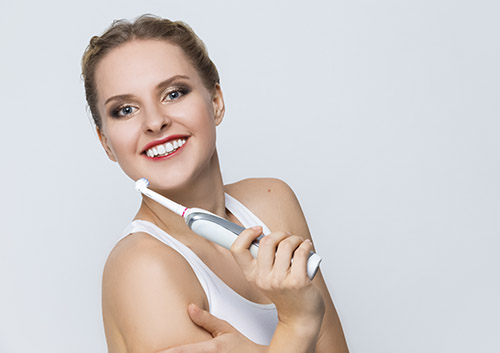Can Superfoods Create a Super Smile?
September 6th, 2023

It’s a rare week that we don’t hear something about superfoods—those foods which will transform our diets and radically improve our health. Remember kale? All the kale? (But, more on kale later!)
So, what exactly are “superfoods”? Unfortunately, we don’t have an exact answer for you, because, while the term “superfood” sounds impressive, it really doesn’t have an exact scientific meaning. Any food which is nutritionally dense with antioxidants, vitamins, minerals, healthy fats and/or other nutrients is often called a superfood.
Can these so-called “superfoods” help improve our dental health? The short answer: Yes! Let’s look at the benefits of some current popular superfoods, and just why they’re so good for our teeth and gums.
- Berries
Blueberries, strawberries, raspberries, and cranberries are not only delicious, but a rich source of antioxidants, minerals, and vitamins, including vitamin C. What does this mean for your dental health? Vitamin C is essential for healthy gums. In fact, one of the symptoms of vitamin C deficiency is swollen and bleeding gums.
- Salmon
“Good fat” seems like a dietary contradiction, but salmon is here to prove it’s possible. Omega-3 fatty acids have been linked to numerous health benefits, including fighting inflammation. Research has shown a possible relationship between getting the recommended amounts of omega-3s and a reduced risk of gum disease.
- Ancient Grains
Ancient grains are grains (and certain grasses and seeds) which have been cultivated the same way over the centuries. And even though these grains have been around for hundreds of years, many cooks are just starting to incorporate foods like quinoa, millet, farro, and freekeh into their recipes. Ancient grains are considered especially healthy because they are whole grains, with their nutrients, bran, and fiber intact. Processing grains removes many of these good-for-your-body elements.
And how does this processing affect our teeth? Whole grain carbs take time to break down and convert into the sugars which fuel our bodies. Processed grains used in foods like soft white breads and white rice start to break down quickly right in the mouth. They also tend to stick to the teeth, providing a rich supply of sugar to feed the oral bacteria which cause cavities. But you don’t need ancient grains to reap the benefits of whole grains—consider substituting whole wheat, brown rice, or whole grain corn for some of the processed grains in your diet.
- Yogurt
Most yogurt, unlike other dairy products, contains probiotics, which help supply our bodies with healthy bacteria. Most yogurt, like other fortified dairy products, is also rich in vitamin D. Vitamin D is essential for tooth health because it allows our bodies to absorb the calcium which keeps bones and teeth strong.
- Kale
We couldn’t leave without a word about kale! Kale is everywhere on the menu, from salads to pasta to soups, added to the blender for fruit smoothies, or salted and roasted for a potato chip substitute. And kale deserves its good reputation. Kale is rich in antioxidants, vitamins, and minerals, such as the beta-carotene which our bodies convert into vitamin A. Among its other benefits, vitamin A is crucial for the health and healing of mucous membranes, which include our gums and the soft membranes of the mouth.
And if you just can’t warm up to kale? More good news: dark green vegetables such as leafy greens and spinach also provide many of the same beta-carotenes. And so do colorful orange options like sweet potatoes, carrots, peppers, pumpkins, and squash.
Can these so-called “superfoods” help improve and maintain our dental health? The short answer: Yes! The longer answer: Yes—and so will any foods which are rich in the vitamins, minerals, antioxidants, and fatty acids which support and protect our teeth and gums. Just remember, a nutritious, balanced diet is more important than any one ingredient. Want more information? Ask Dr. Sardzinski, Dr. Wilken, Dr. Stanley, Dr. Hanson and Dr. Heying when you visit our Hiawatha, IA office for dietary tips to help you maintain a heathy body—and a super smile!




